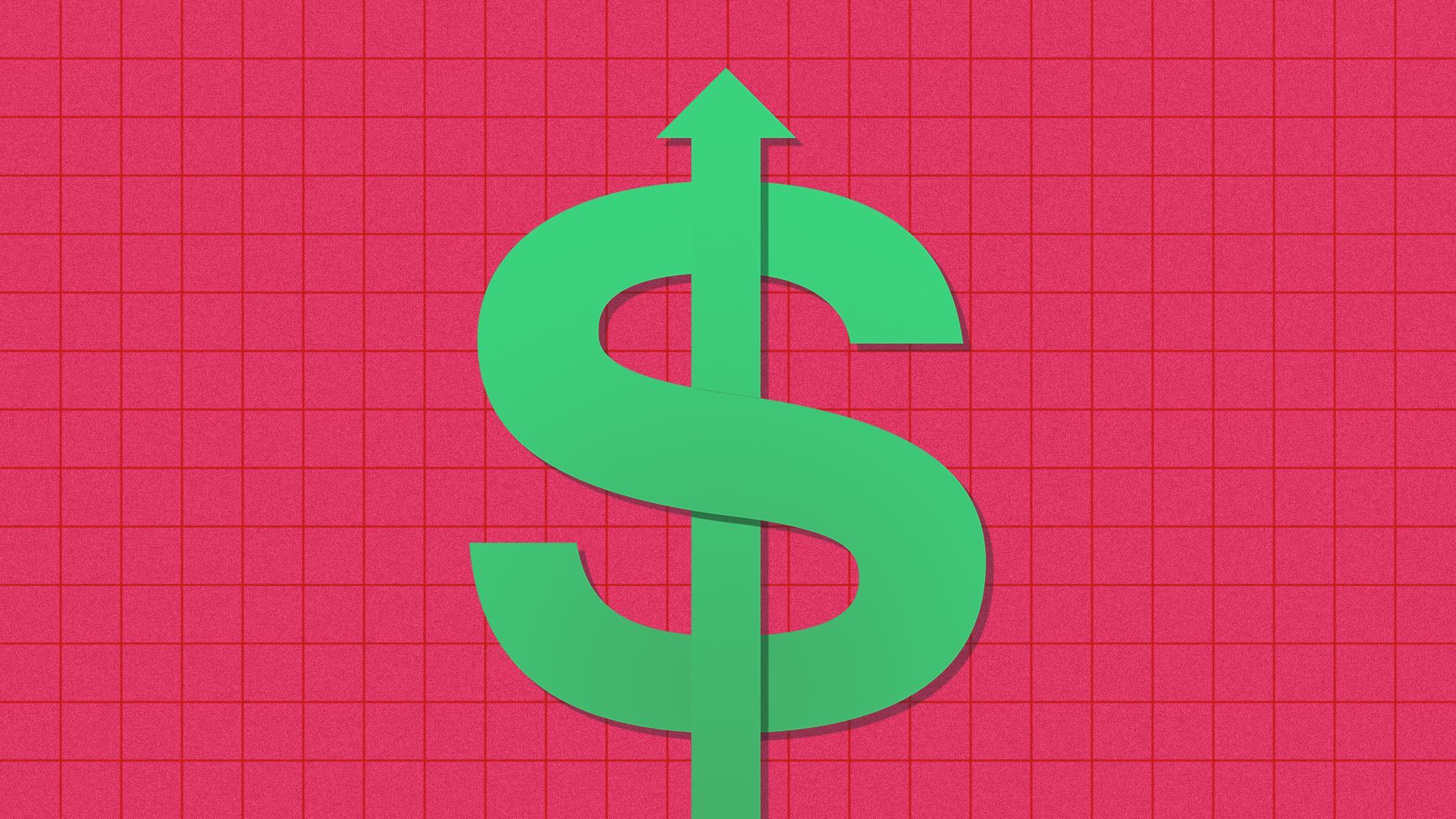Austin budget proposal includes raise for employees
Add Axios as your preferred source to
see more of our stories on Google.

Illustration: Brendan Lynch/Axios
Austin city employees are poised to get their biggest raises in decades in next year's budget.
Why it matters: The city is aiming to fix an ongoing recruitment and retention crisis.
The context: A recent report compiled by the city's Financial Services Department revealed an average citywide vacancy rate of 17%, as employees leave for better opportunities in a tight labor market. Because of staffing vacancies:
- Austin Resource Recovery has curtailed street sweeping and temporarily suspended some bulk waste collection.
- Austin Animal Center has reduced its hours.
- Parks and Recreation Department has struggled to recruit lifeguards.
- Austin Public Library has ended Sunday operations.
What they're saying: "The simple truth of the matter is that we do not currently have the staff that we need to deliver the services that we must," city manager Spencer Cronk said.
By the numbers: Cronk has proposed an across-the-board pay increase of 4% for civilian staff — the largest increase in more than two decades for librarians, rec center staff, utility line workers, waste collection and road repair crews, community health professionals and others.
- Under Cronk's proposal, the city's living wage — the minimum payable to any employee — would rise by 20%, from $15 to $18 per hour, with a longer-term goal to go higher.
- Cronk also said employees who have been with the city for at least a year will receive a one-time retention stipend of up to $1,500 next month.
Other budget highlights: The city is on track to spend $5 billion in the next fiscal year, including:
- $73 million to build and repair city sidewalks
- $27 million for cultural arts, historic preservation and live music, funded by hotel occupancy taxes
- $5.1 million for 55 new airport customer service jobs
- $3.6 million for wildfire prevention and education
- $5 million for emergency rental assistance to prevent homelessness as rent prices rise
The intrigue: Sales tax revenue jumped by 16% over last year's receipts, and property valuations are soaring. Under the proposed budget, the typical homeowner would see a reduction of about $111 in the city's portion of their annual property tax bill.
- Yes, but: Some of the city's rates and fees, including for electricity, trash service, and the transportation user fee, are likely to rise to meet escalating operations costs, as well as increasing service demands from a growing population.
The bottom line: When changes to property taxes, rates and fees are combined, a typical Austin tax- and ratepayer would see a year-over-year increase of 2.7% — equivalent to a shade over $120 per year.
What's next: The City Council will vote on the proposal in August.
